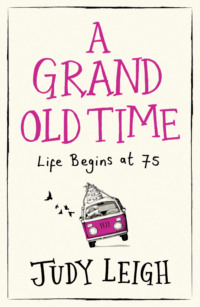Sadece Litres'te okuyun
Kitap dosya olarak indirilemez ancak uygulamamız üzerinden veya online olarak web sitemizden okunabilir.
Kitabı oku: «A Grand Old Time: The laugh-out-loud and feel-good romantic comedy with a difference you must read in 2018», sayfa 2
Judy Leigh
Bir şeyler ters gitti, lütfen daha sonra tekrar deneyin
Türler ve etiketler
Yaş sınırı:
0+Litres'teki yayın tarihi:
30 haziran 2019Hacim:
353 s. 6 illüstrasyonISBN:
9780008269203Telif hakkı:
HarperCollins